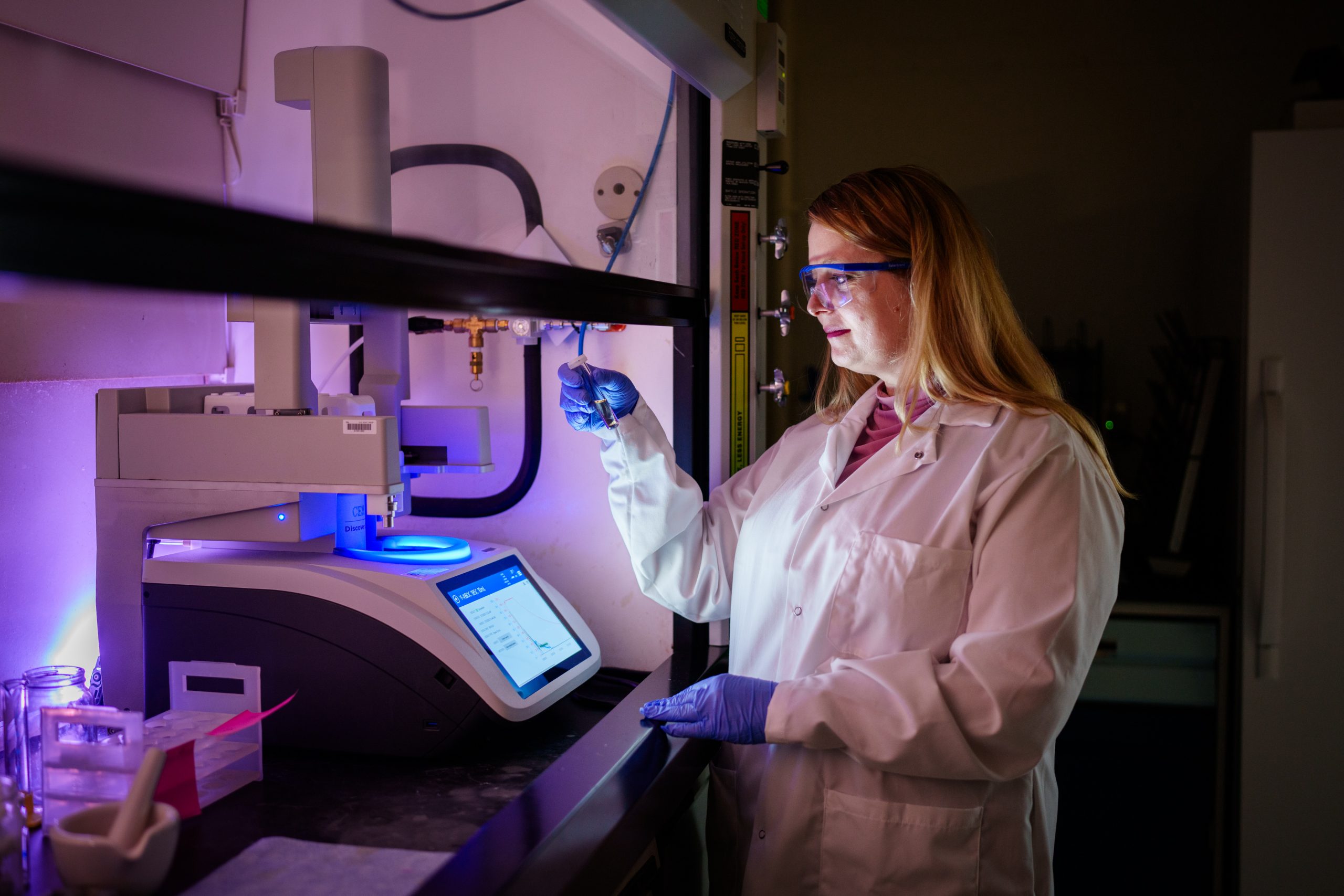ALBUQUERQUE, N.M. — Sandia National Laboratories materials scientist Dorina Sava Gallis has been honored by the American Chemical Society with a 2024 Women Chemists Committee Rising Star Award, recognizing her excellence in the scientific enterprise demonstrating outstanding promise for contributions to her field.

In her 14 years at Sandia, Sava Gallis has accumulated more than a dozen U.S. patents, authored or co-authored more than 60 technical publications and is recognized as a world expert in nanoporous materials, particularly in metal-organic frameworks.
Generating big ideas with the smallest of particles, Sava Gallis has found successful materials solutions in various applications, including environmental remediation, gas storage and separations, energy storage, degradation of toxic chemicals, viral detection, advanced therapeutic countermeasures and photoluminescent materials for solid-state lighting, bioimaging and anticounterfeiting.
“I’m fortunate to be involved in a lot of interesting work with MOFs — for example, bridging biology with material science,” she said. Last year, Sava Gallis led a team that invented a transparent material capable of marking authentic goods with a special pattern or signature visible only under certain kinds of light, effectively thwarting counterfeiters.
Among her many talents and successes, Sava Gallis particularly enjoys assembling research teams.
“I’m really passionate about building multidisciplinary teams to solve cutting-edge national security challenges,” she said. “I enjoy thinking about which people I can collaborate with — material scientists, chemists, engineers, biologists, physicists, modelers — to create the best solutions for specific needs.”
Sava Gallis quickly acknowledged her colleagues and mentors who have contributed to these successful projects.
She has also become adept at technology transfer and commercialization, developing comprehensive business plans and identifying market pathways for her research programs.
“Much of our work has national security relevance, but it also holds significance for the broader material science community, and commercial potential,” Sava Gallis said.
Materials engineer, chemist or materials scientist?
From her earliest years, Sava Gallis was a voracious reader and found math enjoyable.
“In my younger days, math was like a game to me,” she said. “I was self-driven, solving as many math problems as I could. They were riddles for me that I had to find the answers to.”
Her interests and skills in math eventually led to a bachelor’s degree in materials science and engineering. At that point, she faced a crossroads.
“I didn’t originally plan on earning a doctorate, especially in chemistry,” she said. “I didn’t really understand what that entailed. But a professor of mine in undergrad saw my potential and encouraged me to pursue graduate school.”
Studying chemistry at a higher level was one of her biggest life decisions because it took her in a completely different direction.
“Graduate school was tough,” Sava Gallis said. “In science, we think very differently than in engineering. In engineering, we have a macroscopic, applied view. In science, we dig down to the elemental atomic level. It’s a very different mindset.”
Sava Gallis describes herself as an engineer and a scientist. “Overall, the best description of what I do is a materials scientist, but I have this interesting interdisciplinary training,” she said. “I now realize how important graduate school was in shaping me as a scientific researcher.”
A first for Sandia
Sava Gallis has received numerous professional and academic awards throughout her meteoric career, but this one is special.
“I’m really proud of this award,” she said. “This organization and committee have been around for a long time, and this is the first time a Sandia Labs scientist has received this honor.”
In fact, the Women Chemists Committee of the American Chemical Society was established in 1927 to encourage women chemists to take an active interest in society activities. The committee serves as a forum for women chemists, develops guidance for women’s issues in the field and recognizes and promotes women in the chemical sciences.
The Women Chemists Committee Rising Star Award is open to American Chemical Society members in chemistry and chemical engineering working in academic, industrial, government, non-profit or other employment sectors.
